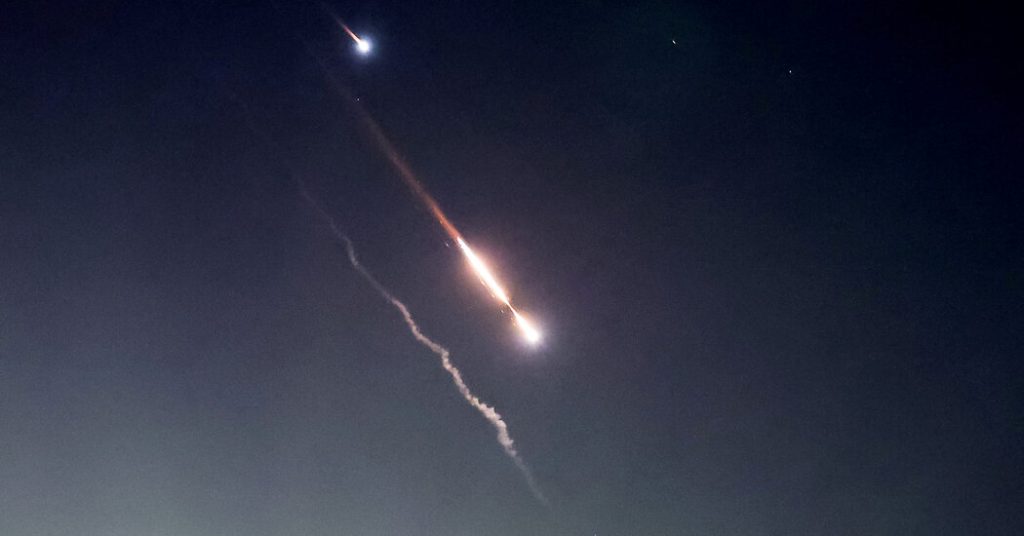Iran has retaliated directly against Israel in response to the killings of its senior generals in Damascus with an onslaught of drones and missiles aimed at restoring its credibility and deterrence. The attack represents a risky moment, with questions remaining about whether Iran’s retaliation has been sufficient to satisfy its calls for revenge or if more strikes will be necessary. Additionally, there is uncertainty about how Israeli Prime Minister Benjamin Netanyahu will respond to the attack, potentially leading to further escalation in the conflict.
Despite Iran’s attack on Israel, officials and analysts believe that Iran will aim to avoid a broader war, as indicated by their targeting of only military sites to prevent civilian casualties. Iran also advertised their attack well in advance, signaling their desire to retaliate against Israel. While Iran appears to have reached a strategic turning point in its conflict with Israel, there is concern that the shadow war between the two countries could escalate into a damaging conflict that may involve the United States.
Iran’s decision to target Israel stemmed from a perceived need to defend against ongoing efforts to undermine its regional position. The attacks this weekend marked a significant shift in Iran’s response, signaling a warning to Israel that there are red lines that cannot be crossed without consequence. Iran has expressed that it is prepared to escalate further, even though such actions would result in significant harm to both sides.
Israel and Iran have been engaged in a covert war for years, with Israel intensifying its attacks on Iranian interests and commanders in Syria following conflicts in Gaza. While previous attacks have been carried out through proxies, the recent direct strikes on each other’s territories represent a dangerous new chapter in the conflict. The changing dynamics have raised concerns about the potential for a regional escalation that could have far-reaching consequences.
The risks of regional escalation have increased significantly following Iran’s direct strike on Israel, with the potential for further retaliation looming. While Iran may have achieved its immediate goal with the attack, the modest outcome could push Israel to respond more forcefully, potentially targeting Iran directly or its proxies in the region. The involvement of the United States in any future actions is also expected to play a crucial role in determining the course of the conflict.
The situation remains tense as both sides navigate the aftermath of the recent attacks. Israel faces the challenge of thwarting potential further Iranian operations while treading carefully to avoid a regional conflict. Iran, on the other hand, must assess the impact of its retaliation and carefully consider its next steps to avoid arousing further escalation. The international community, particularly the United States, will play a key role in pushing for de-escalation and preventing a full-blown conflict between Israel and Iran.








